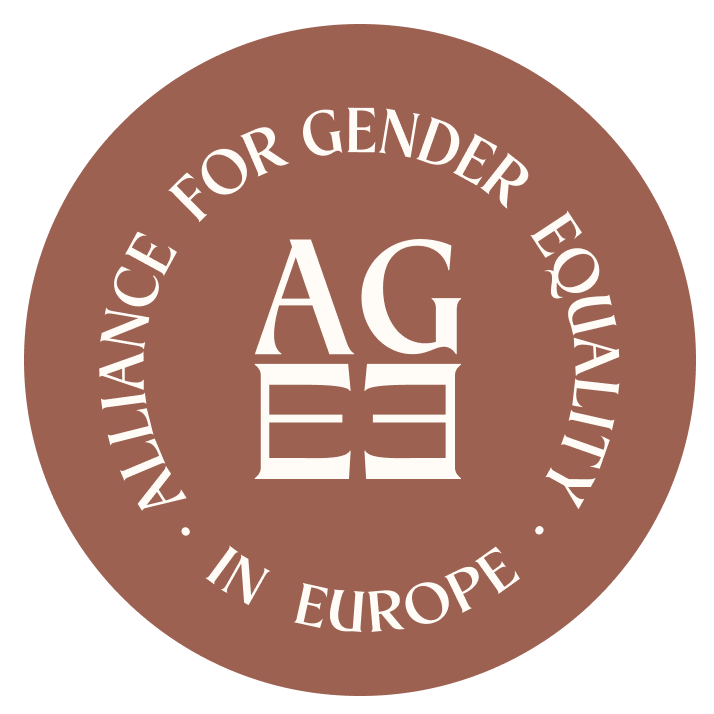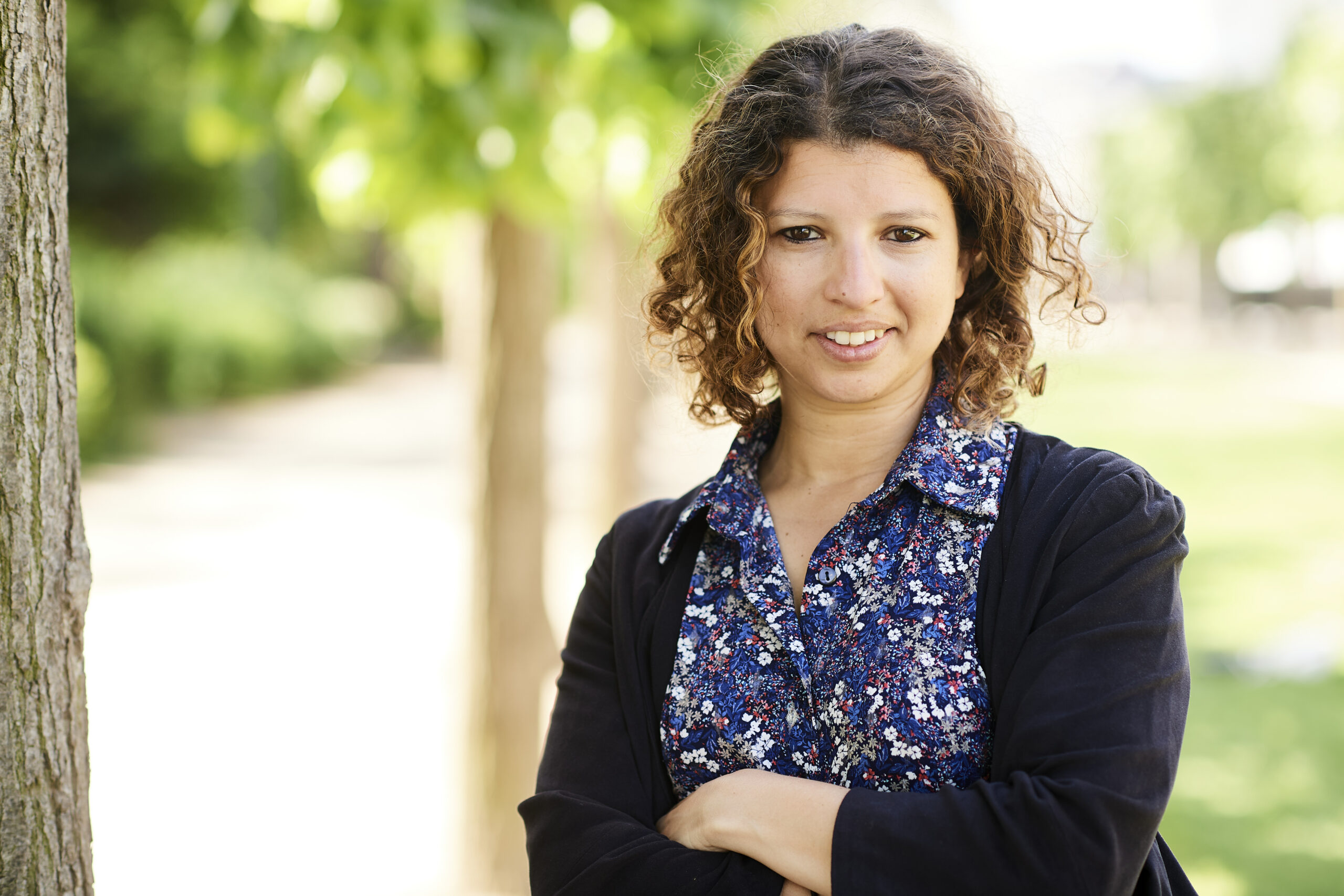Nadège Lharaig leads the Alliance for Gender Equality in Europe, a collaborative fund created in 2021 that brings together several foundations to support grassroots organisations committed to gender equality. A specialist in philanthropy and equality issues, she works to strengthen the funding, resilience, and impact of feminist and LGBTQ+ organisations across Europe.
This interview by Fondation RAJA-Danièle Marcovici has been translated into English. The original version in French is available here.
RAJA-Danièle Marcovici Foundation (FRDM): Can you explain the core mission of the Alliance and how it concretely supports grassroots organisations promoting gender equality?
Nadège Lharaig (NL): The Alliance was officially created in 2021 in response to a very clear observation: associations working on gender equality in Europe are underfunded. A study commissioned by the CHANEL Foundation a few years earlier had shown that, in most cases, these organizations operated with average budgets of around €50,000 per year, often without permanent employees and only with volunteers. This gap with the progress of the feminist movement in Europe showed how much the sector needed to be sustainably strengthened. This is where the idea of a collaborative fund was born: today, we are the first and still the only collaborative fund in Europe dedicated exclusively to gender equality, bringing together seven foundations. Our mission is both to bring more money to the sector and to strengthen it.
Concretely, we have three main areas of action. First, direct financing: we collect funds from our partners and redistribute them to grassroots organisations.
To date, we have allocated 7,5 million euros to 58 associations in 35 countries, with a direct impact on the lives of 60 000 people.
Then, capacity building: we support organisations to build their capacities by, for example, funding training, communication, strategic development, or even initiatives for team well-being, because this is a sector often characterised by precarity and exhaustion. We also organise an annual meeting that allows associations to exchange and learn from each other.
Finally, we work with foundations: the Alliance is also a collaborative space where member foundations learn from each other and from the grassroots organisations, particularly on more trust-based philanthropic practices. And we play an awareness-raising role within the philanthropic ecosystem to build greater commitment to gender equality through conferences, events, and one-on-one conversations.
So, to sum up, our mission is really to provide more resources, strengthen grantee partners, and change the way in which philanthropy supports progress towards gender equality in Europe.
FRDM: The Alliance takes an intersectional approach to funding and support. How does this translate into your choice of partnerships and funded projects?
NL: The intersectional approach is really at the heart of our work, and we put it into practice in two ways. First, through the organisations we support. We prioritise those working with particularly marginalised women, trans or non-binary people, refugees, racialised minorities, people with disabilities, and those living in rural areas or in poverty. And it is essential for us that these associations are led by the communities themselves, because they are best placed to identify the problems and propose relevant solutions. We also ask them to have a transformative approach, that is, to tackle the root causes of inequalities, not just their symptoms and immediate consequences.
The second aspect is our funding approach. We try to apply these principles of inclusion to ourselves: we finance not only projects but also structural costs. We have implemented multi-year funding to give associations greater stability, and we strive to simplify administrative and financial procedures as much as possible. For example, narrative reports are delivered orally, which allows us to have a direct, more human exchange, and also to overcome certain language barriers. Finally, we build a transparent relationship with our partners by sharing our own limitations with them, asking for feedback on our practices, and trying to incorporate their recommendations.
This is complemented by additional support, such as workshops on fundraising, storytelling, and impact measurement, as well as peer-to-peer meetings. All this strengthens the trust, resilience, and long-term impact of our partners.
FRDM: What do you think are the main obstacles to more ambitious philanthropy for gender equality in Europe?
NL: I would say there are two main types of obstacles: on the one hand, persistent myths, and on the other, the current political situation.
The first myth is that gender equality has already been achieved in Europe. However, no country has achieved equality, and the figures remain very worrying: one in three women is still a victim of violence.
The second myth is that gender equality organisations are well funded. In reality, only 2% of philanthropic funding reaches them, while public funding has been shrinking for years. The third myth, finally, is that change only comes from politicians. In fact, every right we have today was won after decades of civil society and feminist mobilisation.
This is where we come up against a reluctance on the part of philanthropy to fund advocacy, for fear of being perceived as “too political.” The current context, with the rise of anti-gender movements, the erosion of democracy in Europe, and the increasing restrictions placed on civil society, makes funding even more difficult. Many see gender as a polarising or risky cause, which limits the boldness needed to truly transform the sector. But wouldn’t the main risk be that the rights of women and LGBTQ people will disappear?
FRDM: What strategies can be implemented to better support organisations and mobilise new private, public, and philanthropic partners in contexts of crisis and unfavourable policies?
NL: In the current context, marked by a real funding crisis, it is crucial to ensure that the available resources do make a difference. This requires, first of all, providing flexible and multi-year funding, which enables organisations to adapt to constantly changing environments, but also the possibility of using these funds to strengthen their independence and resilience: building up reserves, investing, buying premises… In short, it helps them secure their future beyond a simple short-term project.
Another key strategy is collective work. The Alliance’s experience demonstrates this very well: bringing together several foundations around a common approach extends reach, mitigates risk, and creates a community of learning and solidarity. And this collaborative approach should not be limited to philanthropy only. It must permeate the entire social justice sector.
In the face of crises and backlash, it is only through collective and united mobilisation that we will not just preserve the achievements of recent decades but also continue to move towards greater equality.
FRDM: What is your opinion on “pinkwashing”? How can we distinguish between donors who truly support gender equality and those who do so primarily for their image?
NL: For us, the real issue is less about the initial motivation and more about the willingness to learn and engage. At the Alliance, our goal is precisely to bring new funding to gender equality, including from stakeholders who are not yet familiar with the topic. That’s why we have created a safe space where foundations can ask all their questions and move forward without judgment. Of course, public image may play a role, but it is always mixed with other motivations.
Importantly, joining the Alliance is not just about giving money and putting a logo on our communications. Member foundations are involved in meetings, strategic decisions and real collective work. This naturally attracts partners ready to make a deep and long-term commitment, rather than those seeking visibility. In any case, we remain aligned with our values and our mission, and raise awareness and support towards change.
We are also looking to expand our collective. Any foundation interested in joining the Alliance and actively contributing to gender equality is invited to contact us.

